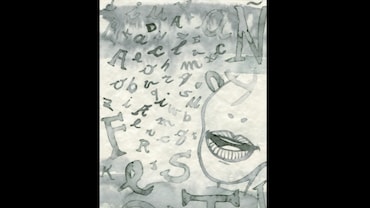Why Storytelling Matters
Stories offer nourishment, shelter and companionship in a world at war with itself.

I vividly recall my son's face when, at the age of three or four, he would listen to my stories. His eyes lit up with wonder, his delicate fingers playing with mine while hanging on to every word. It made me want to pick him up and run around with joy. I would stop to hold on to the moment, but a shrill voice would drag me back into the story: "Then what happened?"
I must confess it was not always fun telling him the same old stories again and again. Every time my attention wavered, his tiny hands would cup my face and turn it around with a stern, "Look at me." My son became a reader too soon. For me it was like being left with an empty nest.
Why am I telling you this? Because, to me, the magic of stories and storytelling--their brave, exquisite, wondrous power--matters most now, more than any other time. Author Philip Pullman once said, "After nourishment, shelter and companionship, stories are the thing we need most in the world." I would argue stories, in a sense, offer all of these. And in a world that is at war with itself, where children are being torn away from their families and kept in cages, where people are being lynched and devoured by bloodthirsty mobs, we need to find reason, hope and compassion. To me, stories and storytelling are probably the most humane and satisfying ways to heal ourselves. Therapists around the world actually use it in their work.
It is astonishing how many people say they run away from the news every day, just to protect themselves from fake news, shouting matches on TV and live-streaming scenes of brutality. The other depressing aspect is the coverage---abominations masquerading as news. In the face of all this, how do you save yourself from losing your mind?
Not everyone can, or indeed should, steer away from the news, be in denial and give up on their right to information. But how do you mitigate the damages, make sure that overexposure to bad news or violence does not make you inured to it, or worse, let it spiral into social anxiety or fits of rage?
Some people turn to yoga and meditation, others find solace in a story. A good story can help us recover from this fast-moving, often vicious news action that has been normalized. It allows us to float into a world of beauty and romance, reason and sanity, where enduring human emotions, such as love and compassion, or idealism and ethics are still alive. They allow you to experience everything that you knew were good and true.
A good story lets us live other lives. And these lived experiences can build and rebuild empathy, without which we are barely human.
Interestingly, it isn't just a means of escaping-powerful narratives in fiction, often speculative, can flag clear and present danger. My own experience of watching the American web show The Handmaid's Tale, based on Margaret Atwood's dystopic novel, while reading Prayaag Akbar's Leila set in a possible future, was extraordinary.
While these stories of women trapped in a surveillance state, looking for a lost child--and freedom--were haunting, the parallels to the current flow of events were chilling: a majoritarian rule with segregated communities living within walls; the converted chanting in praise of faith and purity; gay people, minorities and women with no rights--women useful only in their reproductive role. The value of such a story, at such a time, is nothing if not profound.
At the Calcutta Book Fair of my girlhood there was an announcer with a broad Bengali accent, who would roll out a message over the public address system every once in a while. "A good book is a good friend," she would say stretching her vowels. I have never known anything to be more true.
Yet, when stories are told, not read, it adds a measure of delight to the experience. The thrill of a great narrative rendered in person by a captivating storyteller, the drama, the emotion and the connection are unparalleled. As you lean forward and listen, you are taken on a magical mystery tour in a fantastical maze. Could anything be more fascinating?
What's more, oral histories serve an essential social goal--that of inclusiveness, offering alternate versions of what happened, making the process of chronicling stories of real people and events richer and infinitely more layered. Untold narratives of those who are left to live on the margins, that would have been lost to future generations, are kept alive and shape ethics and value systems.
At a time when our online lives and connections are rewiring our brains rapidly and isolating us, listening to a story from another person, face to face, is priceless. I can't help thinking of my boy, now a teenager, who brought adventure and delight back to my life through stories. He gifted me memories of how it felt to be a child, and the joy of listening to my mother telling me my favourite bedtime story.






